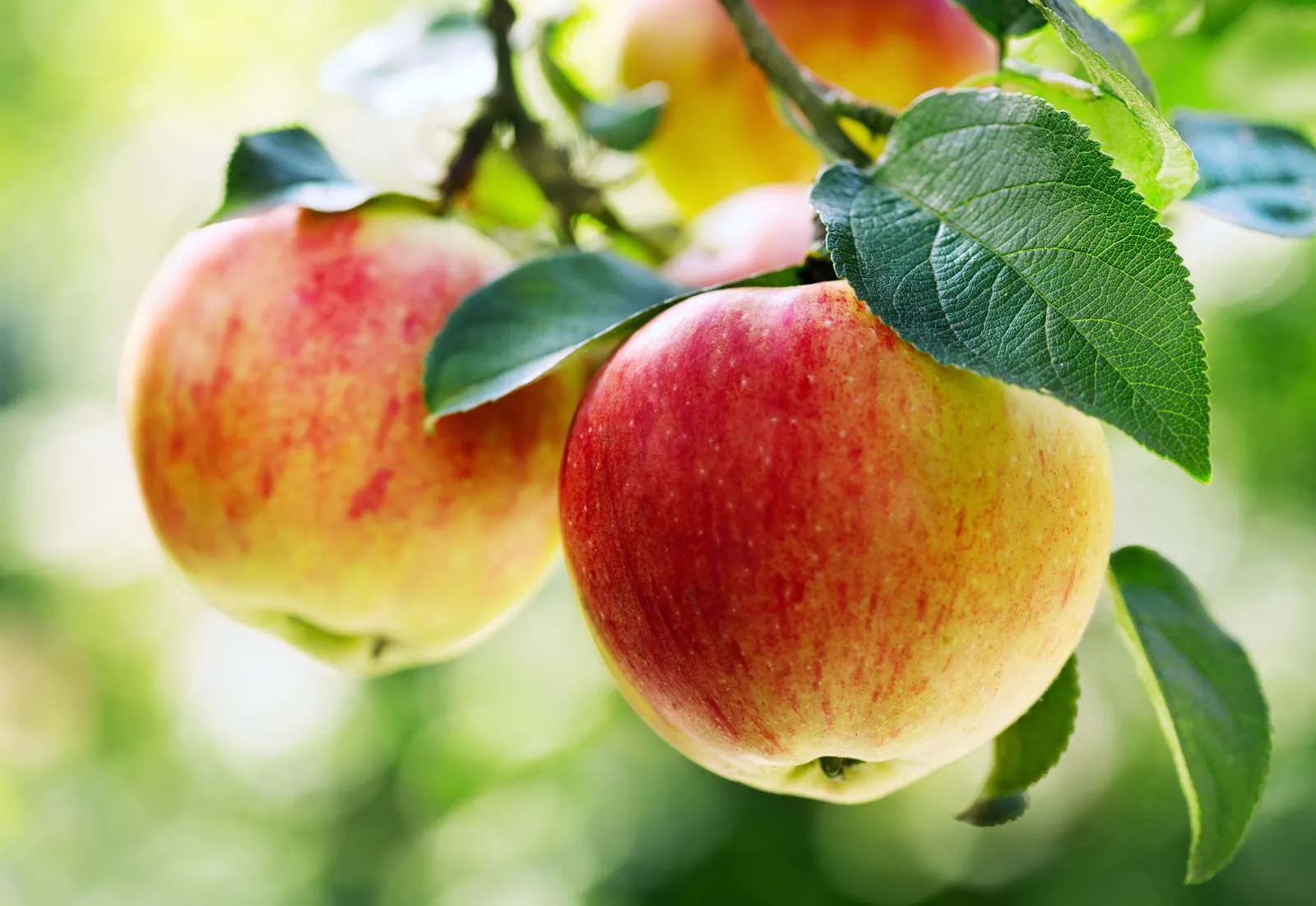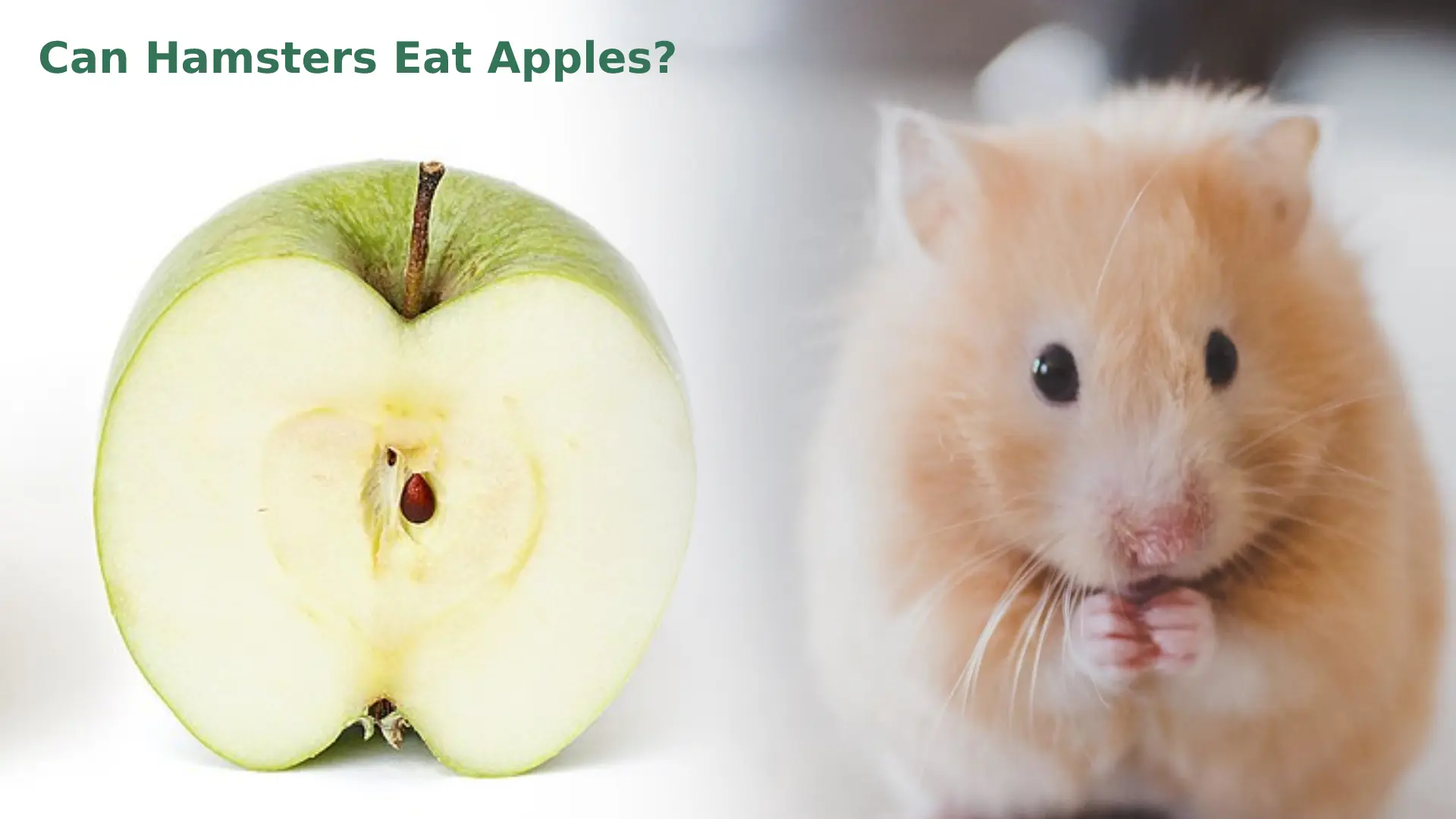Introduction
Hamsters are adorable pets known for their tiny size and insatiable appetite. As a responsible hamster owner, it is essential to provide them with a balanced and nutritious diet. While commercial hamster food is readily available, many people wonder if certain foods/fruits are suitable for their hamsters. In this blog post, we’ll answer question: Can hamsters eat apples? We explore the nutritional benefits, potential risks, and recommended feeding guidelines.
Dietary Requirements
Hamsters have specific dietary requirements to ensure their overall health and well-being. A balanced hamster diet should include proteins, carbohydrates, fats, fiber, vitamins, and minerals. Proteins can be sourced from high-quality hamster pellets, insects, and occasionally cooked meat. Carbohydrates can be provided through whole grains, fruits, and vegetables. Fats, in moderation, are essential for energy. Fiber aids in digestion and prevents gastrointestinal issues. Vitamins and minerals are necessary for various bodily functions. Creating a balanced diet is crucial for the long-term health of your hamster.
Nutritional Facts About Apples

Apples are a popular fruit known for their refreshing taste and nutritional value. They are rich in vitamins, dietary fiber, antioxidants, and minerals. A medium-sized apple contains approximately 95 calories, 25 grams of carbohydrates, 4 grams of fiber, and small amounts of vitamin A, vitamin C, and potassium. These nutrients can contribute to a hamster’s overall well-being when offered in moderation.
Benefits of Feeding Apples to Hamsters
There are quite a number of benefits that come from feeding Apples to your Hamsters. They are as follows:
Vitamins and Minerals
Apples contain various vitamins and minerals that can benefit a hamster’s health. Vitamin A is essential for good vision, while vitamin C supports the immune system. Potassium helps maintain proper fluid balance and supports heart health. Although hamsters can synthesize their own vitamin C, a small amount from apples can still be beneficial.
A Good Source of Fiber and Improved Digestive Health
The dietary fiber present in apples can promote healthy digestion in hamsters. Fiber adds bulk to their stool, helping prevent constipation and ensuring smooth bowel movements. It also aids in maintaining a healthy gut environment.
Hydration and Water Content
Apples have a high water content, which can supplement a hamster’s daily water intake. This is particularly useful during warm weather or when your hamster may not be drinking enough water. Offering small, water-rich fruits like apples can help to keep your hamster hydrated.
Risks and Precautions
While apples have great nutritional value for your hamsters, they also pose some risks you should be aware of:
Sugar Content
Compared to other fruits, the overall sugar content in apples is relatively low. However, you cannot let your hamster consume too much of the green fruit, as they have sensitive digestive systems, and excessive sugar intake can lead to obesity, dental problems, and gastrointestinal issues. It is important to practice portion control and limit the number of apples they consume; a small, bite-sized piece of apple once or twice a week is usually enough.
Pesticide Residue
Several studies show that more than 50% of conventionally grown apples may contain pesticide residues, which can be harmful to hamsters. It is advisable to always go for organic apples when possible. If organic apples are not available, ensure you wash the apple thoroughly under running water to reduce the pesticide residue. Peeling the apple can further minimize any potential risks.
Allergies and Individual Sensitivities
Just like humans, hamsters can have individual allergies or sensitivities to certain foods, including apples. When introducing apples into your hamster’s diet, observe their reaction. If you notice any signs of allergies, such as skin irritation, digestive upset, or changes in behavior, discontinue feeding them apples and consult a veterinarian.
How to Safely Feed Apples to Your Hamster
To safely feed apples to your hamster, follow these steps:
- Choose a ripe apple that is fresh and free from any visible damage or mold.
- Wash the apple thoroughly under running water to remove any dirt OR pesticide residues.
- You can also peel the apple. By doing so, you remove any pesticide residue left on the skin of the apple.
- Remove the seeds and core of the apple, as they can pose a choking hazard and contain trace amounts of cyanide.
- Cut the apples into small, bite-sized pieces.
Introducing Apples Into Your Hamster’s Diet
When introducing apples into your hamster’s diet, do so gradually. Start with a small piece and monitor your hamster’s response. If there are no adverse effects, you can gradually increase the amount. Remember to offer apples as an occasional treat rather than a staple food. Always provide fresh water alongside the apple to ensure your hamster stays hydrated.
Wrapping Up
In conclusion, apples can be a healthy and enjoyable addition to a hamster’s diet when offered in moderation and prepared appropriately. They offer essential nutrients, dietary fiber, and hydration benefits. However, be mindful of the sugar content and individual hamster sensitivities. By following the recommended guidelines and consulting with a veterinarian, you can ensure that your furry friend enjoys the occasional apple treat without compromising their well-being. Remember, a well-balanced diet is the key to a happy and healthy hamster.
